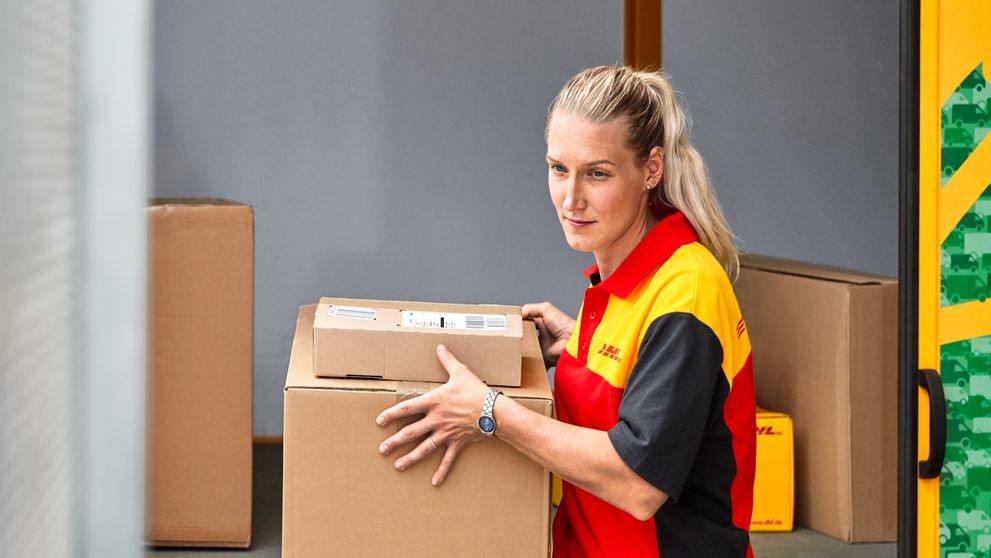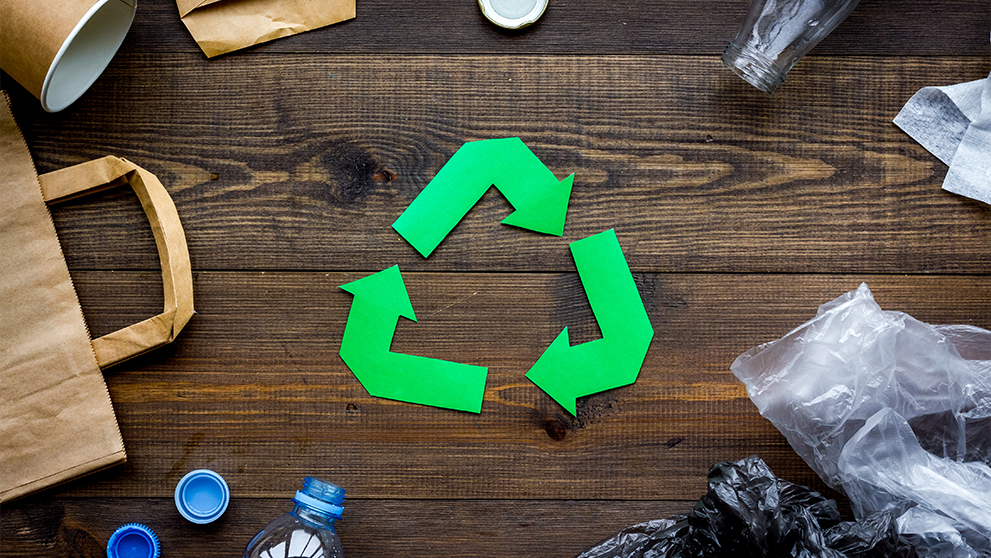Consumers are increasingly demanding sustainable practices from businesses. Explore how you can adapt to these evolving expectations by building a sustainable supply chain and leveraging responsible shipping solutions.
From reducing waste and sourcing ethically to minimizing carbon emissions and supporting local communities, businesses are facing more pressure to adopt responsible business practices.
In particular, there's a growing demand among Australian consumers for companies to prioritize sustainability, particularly in their shipping practices and supply chain logistics. This shift in consumer behavior is an opportunity for businesses.
By responding to this demand and integrating sustainability into their operations, companies can meet customer expectations, gain a competitive advantage, and contribute to a more environmentally and socially responsible future. If you’re a business owner, read on to find out how the right logistics services and practices can help you to operate more responsibly.
The rise of conscious consumerism in Australia
The Australian consumer is increasingly conscious of the impact their purchasing decisions have on the environment and society today. According to the 2024 Voice of the Consumer survey by PwC Australia, 41% of consumers are actively buying more sustainable products, with 68% expressing a willingness to pay more for products with a lower carbon footprint1. These figures demonstrate a clear trend – customers are prioritizing sustainability, even if it means adjusting their spending habits.
In light of these consumer behavior trends, your customers’ expectations would also most likely extend beyond products to encompass the entire supply chain, meaning that businesses with sustainable shipping methods and transparent supply chain logistics stand a better chance of success.
This shift in consumer preferences underscores the importance of adapting and embracing sustainability throughout your operations.
The importance of sustainable shipping for SMEs
Given the evolving customer expectations in logistics, it's crucial for you to respond to the demand for sustainability and incorporate responsible practices into your operations. By doing so, you stand to reap a variety of benefits, such as increased customer loyalty, enhanced brand reputation, and improved market competitiveness.
However, implementing sustainable practices can be a challenge, particularly when it comes to aligning internal and external stakeholders. For instance, the DHL 2024 Sustainability Matters global survey revealed that SMEs often lack confidence in customer demand for sustainable services, with only 23% of respondents believing that their customers would be "very" or "extremely" willing to pay more for sustainable shipping2.
Furthermore, the survey highlighted that the main concern among SMEs across various markets is the difficulty in getting customer and internal buy-in to reach their sustainability goals. This challenge is particularly prevalent in the chemicals (51%) and professional services (47%) sectors2. Therefore, it’s not surprising that some businesses might face inertia in the pursuit of sustainability.
With that said, recent shopping trends suggest that these concerns may not be entirely warranted. For instance, the DHL Global Shopper Survey in 2024 found that approximately 60% of online shoppers expressed a willingness to pay more for sustainable packaging3.
This figure suggests that there are more opportunities for businesses to differentiate themselves and cater to environmentally conscious consumers than they realize. With the right logistics and international shipping partners, such as DHL Express, integrating responsible practices into your operations is achievable.
Tips to achieve supply chain sustainability
To effectively meet the growing demand for sustainability and enhance your business's environmental and social responsibility, consider implementing the following tips and strategies.
1. Partner with ethical suppliers
Partnering with ethical suppliers is a crucial step towards building a sustainable supply chain. This involves ensuring that your suppliers adhere to fair labor practices, prioritize environmental protection, and use responsibly sourced materials. For example, if you're in the fashion industry, you can partner with suppliers who use organic cotton and minimize water usage in their production processes.
2. Use sustainable packaging
According to the Sustainability Matters survey, sustainable packaging is a key priority for many businesses, particularly in B2C sectors like fashion (47%) and retail (41%)2. To minimize the environmental impact of your product packaging, consider working with manufacturers committed to eco-friendly production practices.
Prioritize recyclable and biodegradable materials for your packaging, reducing waste, and demonstrating your commitment to sustainability. These efforts can enhance your brand reputation and resonate with environmentally conscious consumers.
3. Choose carbon-neutral shipping options
To minimize your carbon footprint and align with sustainable shipping methods, consider adopting carbon-neutral shipping options. Sustainable aviation fuel (SAF) and electric vehicles (EVs) are excellent examples of how you can reduce the emissions associated with your shipments.
As a cleaner alternative to conventional jet fuel, SAF is produced from renewable sources and can significantly reduce greenhouse gas emissions in international shipping. Meanwhile, EVs do not emit pollutants, contributing to cleaner air.
By choosing these carbon-neutral options, you contribute to a greener future and demonstrate your commitment to sustainability.
4. Optimize delivery routes
Optimizing delivery routes is a crucial step towards achieving supply chain sustainability. By utilizing advanced technologies like AI-powered route planning software, you can minimize idle times from traffic congestion, reduce fuel consumption, and lower overall emissions.
Implementing optimized delivery routes benefits the environment while reducing transportation costs. Furthermore, the enhanced efficiency also means items reach their destinations sooner, contributing to increased customer satisfaction.
5. Support local communities
Supporting local communities is an integral part of responsible business practices. In Australia, this can involve sourcing materials from local suppliers, partnering with community organizations, or contributing to local initiatives.
By integrating community support into your supply chain and business practices, you create a positive social impact, foster stronger relationships within your community, and enhance your brand reputation.
DHL's commitment to responsible shipping
With the right partners, you can successfully integrate sustainable practices into your supply chains to be more socially responsible and gain a competitive advantage in the process. As such, DHL Express is dedicated to enabling you to adopt responsible practices through our sustainable logistics services.
For example, our GoGreen Plus service enables you to utilize sustainable aviation fuel (SAF) in international shipping, significantly reducing greenhouse gas emissions by up to 80% compared to conventional fossil fuels. Furthermore, our EVs in Australia provide you with more environmentally friendly options for land transportation.
Additionally, with options like On-Demand Delivery (ODD), your customers have greater control over their deliveries. It allows them to choose from various flexible delivery options, such as specifying delivery times or opting for deliveries to be left at a parcel locker, helping you to reduce failed delivery rates. In turn, the associated transportation emissions can be reduced, further contributing to a more sustainable logistics network.
Delivering Sustainability with DHL Express

As consumer awareness of environmental and social issues grows, there's an increasing expectation for businesses to adopt responsible practices. Therefore, meeting consumer demand for sustainability is paramount for success in today's competitive landscape.
Imagine a thriving business landscape where sustainability is integrated across the supply chain, from sourcing and production to packaging and shipping. By embracing responsible practices and leveraging innovative solutions, this future can become a reality.
Begin your journey towards sustainability today. Explore DHL Express's GoGreen options or open a business account with us today.
1- Voice of the Consumer Survey 2024, PwC Australia, accessed Jan 2025
2- Sustainability Matters Global Survey 2024, DHL Express, accessed Jan 2025
3- Global Shopper Survey 2024, DHL Express, accessed Jan 2025








































